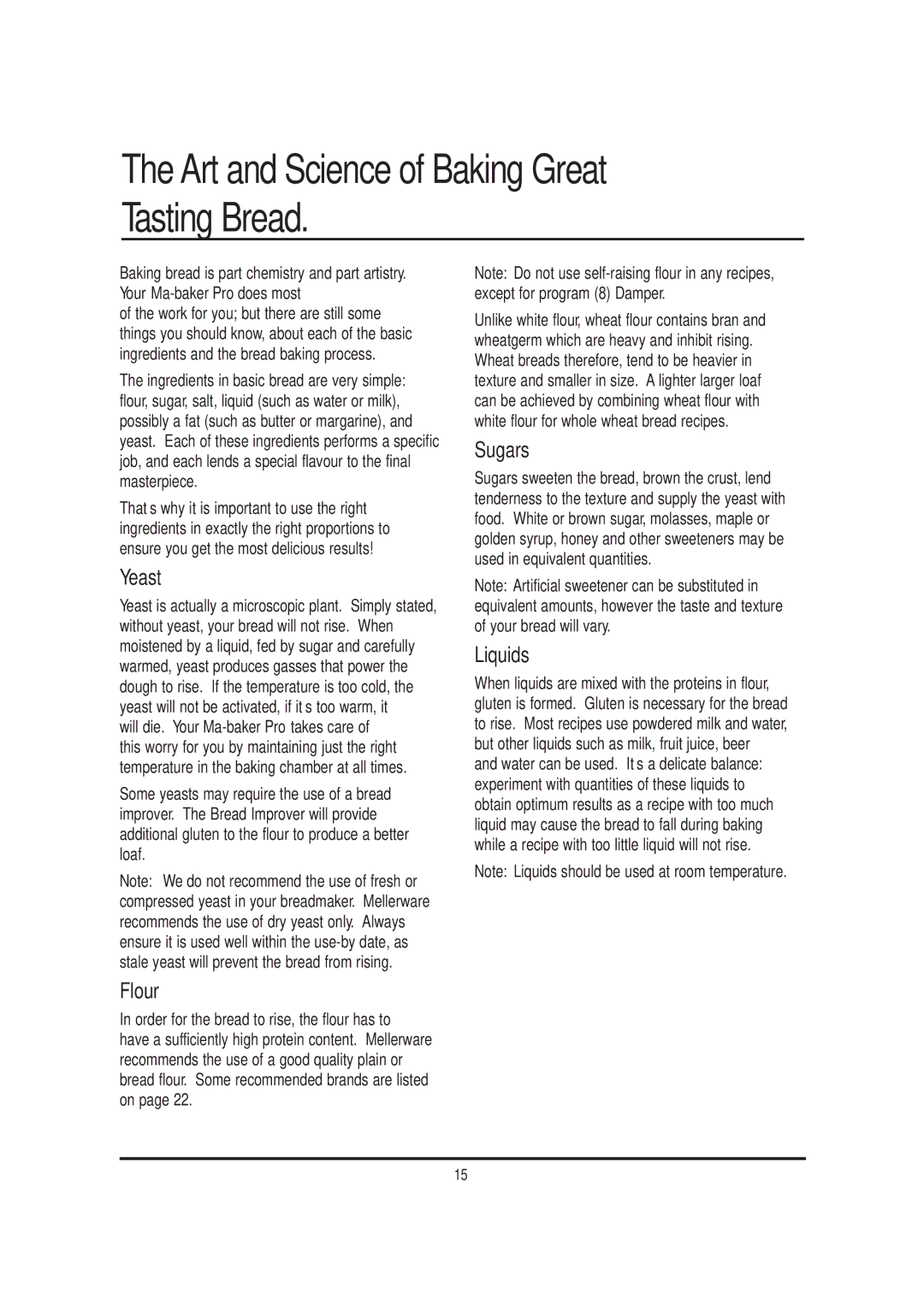
The Art and Science of Baking Great Tasting Bread.
Baking bread is part chemistry and part artistry. Your
of the work for you; but there are still some things you should know, about each of the basic ingredients and the bread baking process.
The ingredients in basic bread are very simple: flour, sugar, salt, liquid (such as water or milk), possibly a fat (such as butter or margarine), and yeast. Each of these ingredients performs a specific job, and each lends a special flavour to the final masterpiece.
That’s why it is important to use the right ingredients in exactly the right proportions to ensure you get the most delicious results!
Yeast
Yeast is actually a microscopic plant. Simply stated, without yeast, your bread will not rise. When moistened by a liquid, fed by sugar and carefully warmed, yeast produces gasses that power the dough to rise. If the temperature is too cold, the yeast will not be activated, if it’s too warm, it
will die. Your
Some yeasts may require the use of a bread improver. The Bread Improver will provide additional gluten to the flour to produce a better loaf.
Note: We do not recommend the use of fresh or compressed yeast in your breadmaker. Mellerware recommends the use of dry yeast only. Always ensure it is used well within the
Flour
In order for the bread to rise, the flour has to
have a sufficiently high protein content. Mellerware recommends the use of a good quality plain or bread flour. Some recommended brands are listed on page 22.
Note: Do not use
Unlike white flour, wheat flour contains bran and wheatgerm which are heavy and inhibit rising. Wheat breads therefore, tend to be heavier in texture and smaller in size. A lighter larger loaf can be achieved by combining wheat flour with white flour for whole wheat bread recipes.
Sugars
Sugars sweeten the bread, brown the crust, lend tenderness to the texture and supply the yeast with food. White or brown sugar, molasses, maple or golden syrup, honey and other sweeteners may be used in equivalent quantities.
Note: Artificial sweetener can be substituted in equivalent amounts, however the taste and texture of your bread will vary.
Liquids
When liquids are mixed with the proteins in flour, gluten is formed. Gluten is necessary for the bread to rise. Most recipes use powdered milk and water, but other liquids such as milk, fruit juice, beer
and water can be used. It’s a delicate balance: experiment with quantities of these liquids to obtain optimum results as a recipe with too much liquid may cause the bread to fall during baking while a recipe with too little liquid will not rise.
Note: Liquids should be used at room temperature.
15
